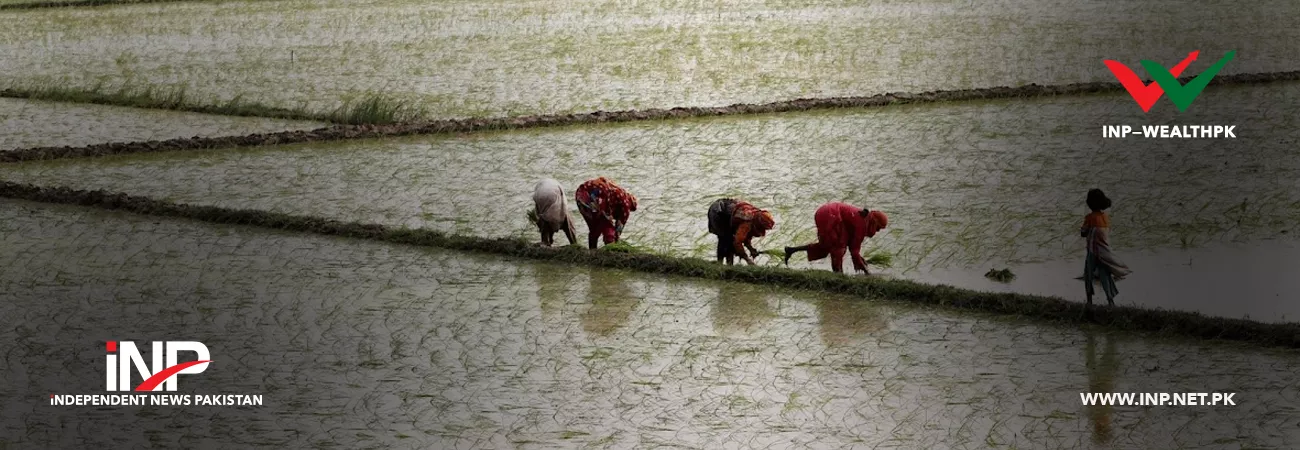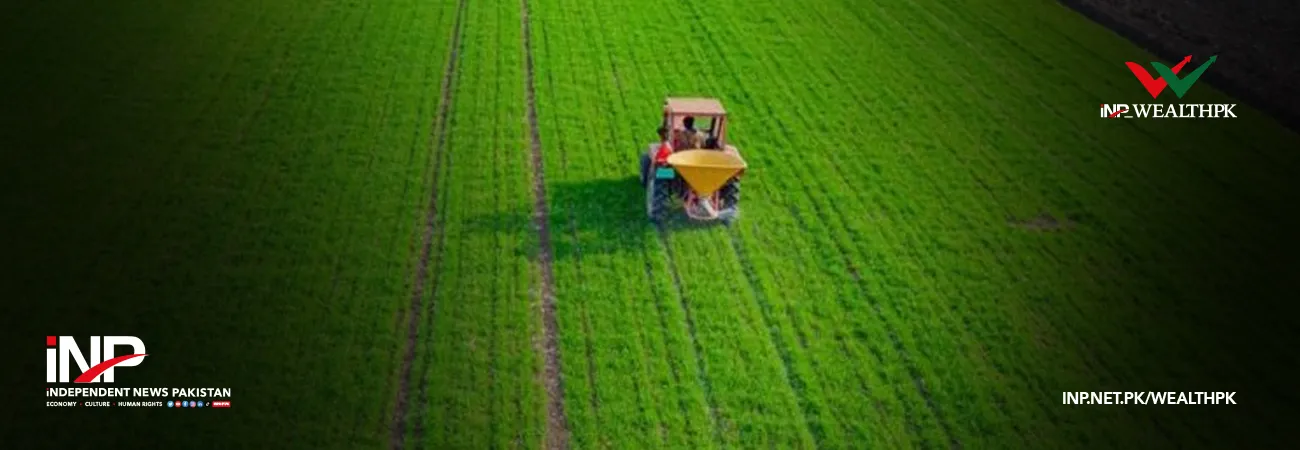INP-WealthPk
Arooj Zulfiqar
The startling effects of the recent devasting floods in Pakistan will continue to haunt the national economy, particularly the agriculture industry, if effective steps are not taken to rehabilitate the affected areas and revive economic activities there, WealthPK reports.
The floods have destroyed vital crops and vegetables in different parts of Pakistan besides washing away agricultural farms and orchards. The destruction caused by floods has put at risk food security in Pakistan.
Pakistan Institute of Development Economics (PIDE) Vice-chancellor Prof Nadeemul Huq said that in recent years, Pakistan faced catastrophic weather patterns including floods and droughts.
“Due to anticipated climatic changes, the frequency and severity of these catastrophes are rising with each passing year. Floods are causing agricultural losses in places prone to flooding or drought,” he said.
Prof Nadeem said that the recent floods affected 18 million people and severely damaged crops, animals, infrastructure, businesses and houses. He said that most of the flood victims were already living in extreme poverty.
“Vast agricultural land has been damaged by floods in dozens of districts in Pakistan. If thousands of acres of agricultural land is not restored, the country will soon experience a food crisis. Rain and flooding have wreaked havoc on the farming community and severely damaged the agriculture industry,” he said.
Prof Nadeem stressed the need to rehabilitate the flood-affected districts. “The majority of the rural population depends on agriculture for livelihood, which is severely harmed by floods. The government should provide financial assistance to farmers. The flood-affected farmers need subsidies on seeds and fertiliser. The subsidies will help the affected farmers to get back on their feet,” he added.
He said that Pakistan needed to initiate climate-resilient programmes by improving community infrastructure. “The floods will have more disastrous effects on Pakistan as the country has already faced a severe economic crisis,” he added.
Prof Nadeem told WealthPK that a major source of income would be affected by the flood damage because Pakistan is an important exporter of agricultural products. Pakistan is the world’s fourth-largest exporter of rice but the recent floods badly damaged the crop.
According to the Pakistan Bureau of Statistics, the country exported rice worth a record $2.5 billion during the financial year 2021-22. Almost 42% of the rice crop is cultivated in Sindh.
A study on Sindh’s crop loss by the International Centre for Integrated Mountain Development revealed that floods had a special effect on the rice crop. Floods were particularly bad in the rice-growing areas. It has been estimated that about 1.9 million tonnes of rice have been lost, showing an 80% reduction in the province's projected rice production.
The government is also seeking financial aid from the World Bank to assist the flood-hit farmers. In this connection, a meeting was held between the minister for national food and security and John A Roome, the South Asia Regional Director for Sustainable Development of World Bank.
The meeting discussed the rehabilitation and relief efforts in the flood-hit areas with a special focus on farmers and food security.
“At this critical time, we only focus on rehabilitation activities in the flood-affected areas,” said the minister.
“The World Bank will help Pakistan in this need of the hour to rehabilitate the affected community,” said A Rome. He agreed to support the rehabilitation of farms in flood-affected districts and locus-hit areas. He said that the World Bank was working with provincial agriculture departments to support the farming community.
Credit : Independent News Pakistan-WealthPk













